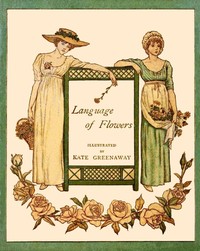Writing Review:
__________________
This is a page where I give my brief impression of other people's writings, right now poems.
__________________
This is a poem by Juana Ines, a female writer of Mexico. She come across as quite angry when I read the poem, and the whole situation she describes is quite bleak.
You foolish men who lay
the guilt on women,
not seeing you're the cause
of the very thing you blame;
if you invite their disdain
with measureless desire
why wish they well behave
if you incite to ill.
You fight their stubbornness,
then, weightily,
you say it was their lightness
when it was your guile.
In all your crazy shows
you act just like a child
who plays the bogeyman
of which he's then afraid.
With foolish arrogance
you hope to find a Thais
in her you court, but a Lucretia
when you've possessed her.
What kind of mind is odder
than his who mists
a mirror and then complains
that it's not clear.
Their favour and disdain
you hold in equal state,
if they mistreat, you complain,
you mock if they treat you well.
No woman wins esteem of you:
the most modest is ungrateful
if she refuses to admit you;
yet if she does, she's loose.
You always are so foolish
your censure is unfair;
one you blame for cruelty
the other for being easy.
What must be her temper
who offends when she's
ungrateful and wearies
when compliant?
But with the anger and the grief
that your pleasure tells
good luck to her who doesn't love you
and you go on and complain.
Your lover's moans give wings
to women's liberty:
and having made them bad,
you want to find them good.
Who has embraced
the greater blame in passion?
She who, solicited, falls,
or he who, fallen, pleads?
Who is more to blame,
though either should do wrong?
She who sins for pay
or he who pays to sin?
Why be outraged at the guilt
that is of your own doing?
Have them as you make them
or make them what you will.
Leave off your wooing
and then, with greater cause,
you can blame the passion
of her who comes to court?
Patent is your arrogance
that fights with many weapons
since in promise and insistence
you join world, flesh and devil.
Instead of feeling joy that a woman writer was standing her ground, contributing to women's rights, reading this poem is depressing for me, to see what female members of society had to go through.
__________________
This is a collection of poems by Phillis Wheatley, the first African-American woman to write poetry and have it published.
http://www.gutenberg.org/ebooks/409
Since the poems are in an old-fashioned version of English, I find them somewhat difficult to understand, especially when the poems are long. However, I will review one of her poems.
ON BEING BROUGHT FROM AFRICA TO AMERICA.
fTwas mercy brought me from my Pagan land,
Taught my benighted soul to understand
That therefs a God, that therefs a Saviour too:
Once I redemption neither fought nor knew,
Some view our sable race with scornful eye,
gTheir colour is a diabolic die.h
Remember, Christians, Negroes, black as Cain,
May be refinfd, and join thf angelic train.
She is referring to Africa when she refers to "her Pagan land," she tells the viewer that she converted to Christianity, and she is saying Christianity does not discriminate against races, they can all be saved.
I learned the answers from here.
https://www.tolerance.org/classroom-resources/texts/on-being-brought-from-africa-to-america
(Just my impression, but I find it interesting that she refers to Cain, since Cain was a murderer in the Bible.)
__________________
Not explicitly related to poetry, but people used to use flowers to communicate. http://www.gutenberg.org/ebooks/31591

